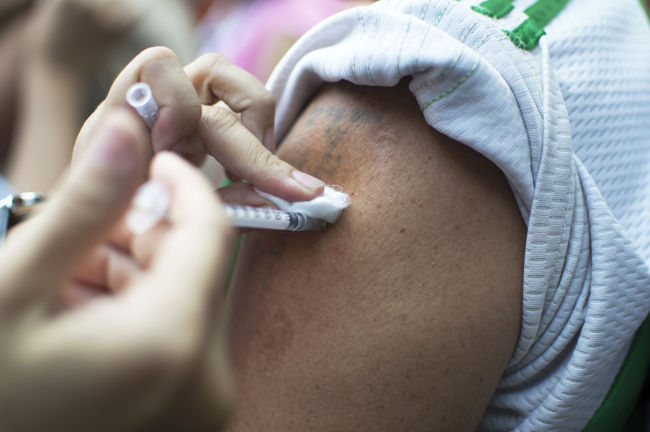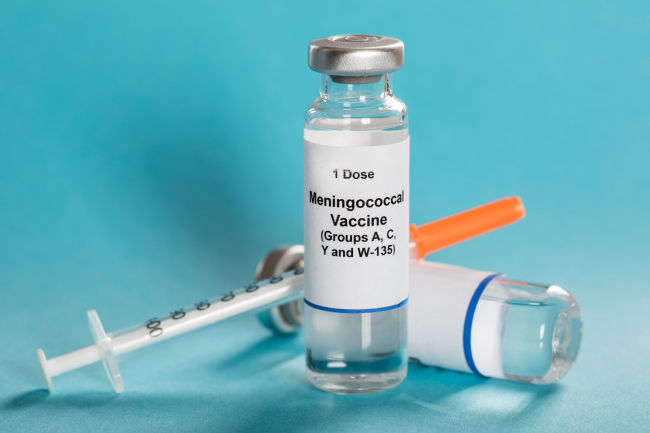[PyeongChang 2018] Meningococcal vaccines recommended for Olympics attendees
By Sohn Ji-youngPublished : Jan. 24, 2018 - 16:00
From athletes and support staff to reporters and spectators, millions of people from around the world are set to gather at the 2018 Winter Olympics, which will kick off in South Korea’s eastern county of PyeongChang on Feb. 9.
At large-scale events like the Olympic Games, the risks of an infectious disease outbreak are expected to be higher. Though germs will always be in the air, event participants are advised to protect themselves against a particularly deadly infection called meningococcal disease.
Meningococcal disease refers to illnesses caused by the Neisseria meningitides bacteria. The most common outcome of meningococcal infection is meningitis, a bacterial infection which affects the brain and spinal membrane, and septicemia, a bloodstream infection.
At large-scale events like the Olympic Games, the risks of an infectious disease outbreak are expected to be higher. Though germs will always be in the air, event participants are advised to protect themselves against a particularly deadly infection called meningococcal disease.
Meningococcal disease refers to illnesses caused by the Neisseria meningitides bacteria. The most common outcome of meningococcal infection is meningitis, a bacterial infection which affects the brain and spinal membrane, and septicemia, a bloodstream infection.

Though rare, both of these types of infections are very serious and can become deadly in a matter of hours. Meningococcal meningitis is fatal in 50 percent of cases if left untreated, according to the World Health Organization.
In the case of meningococcal septicemia infection, even if it is diagnosed early and adequately treated, 8 to 15 percent of patients die, often within 24 to 48 hours after the onset of symptoms, according to the WHO.
The infectious disease can strike anyone of any age, but mainly affects babies, preschool children and young people in their teens and 20s.
Meningococcal disease spreads by direct contact through saliva or respiratory droplets from the nose and throat of an infected person. This means the infection spreads more easily and quickly in large crowd settings, including schools, sports teams and international events.
As of now, meningococcal disease occurs mostly in developing countries in West Africa. But the infection is also regularly reported in other parts of the world including the US, Europe and China.
At mass gatherings like the Olympics, it is more likely that the disease can manifest and spread among crowds. In Korea, incidences of meningococcal diseases have increased during times of large-scale international gatherings in the past, such as the 2002 FIFA World Cup.
The biggest issue with meningococcal disease is that its early symptoms are similar to those of a common cold, making early detection difficult. The infection is also quick to advance, and can potentially lead to death within just 24 hours.

Considering the risks, the best way to deal with meningococcal disease is early prevention — by getting vaccinated before placing oneself in a group environment.
Some schools and colleges abroad require incoming students to receive a meningococcal vaccine before entrance. The same goes for team sport athletes as well as soldiers who are constantly in a group environment.
In the case of Korea, the military began requiring all new incoming soldiers to get vaccinated for meningococcal meningitis from 2012 after two trainee soldiers in their early 20s died due to the infection.
In Korea, there are two meningococcal conjugate vaccines approved for use by the Drug Ministry — Sanofi Pasteur’s Menactra and GSK’s Menveo. The vaccines are available to anyone at most internal medicine clinics nationwide.
Though the vaccination schedule differs by age and vaccine type, a single vaccine injection is typically suffice for people aged between two to 55, according to the Korea Centers for Disease Control and Prevention.
As part of efforts to prevent the spread of infectious diseases during the PyeongChang Olympics, organizers and the Korean National Tuberculosis Association are offering tuberculosis exams and meningococcal vaccinations to the Olympics staff for free.
The exams and vaccinations are available at Seoul and major cities nationwide through early February, before the Olympics opening ceremony, the association said.
By Sohn Ji-young (jys@heraldcorp.com)











![[Hello India] Hyundai Motor vows to boost 'clean mobility' in India](http://res.heraldm.com/phpwas/restmb_idxmake.php?idx=644&simg=/content/image/2024/04/25/20240425050672_0.jpg&u=)







